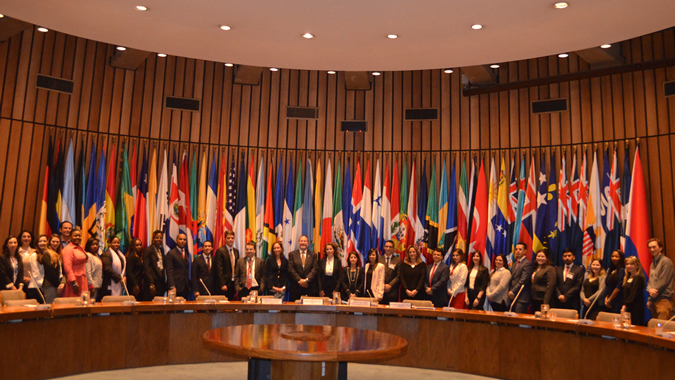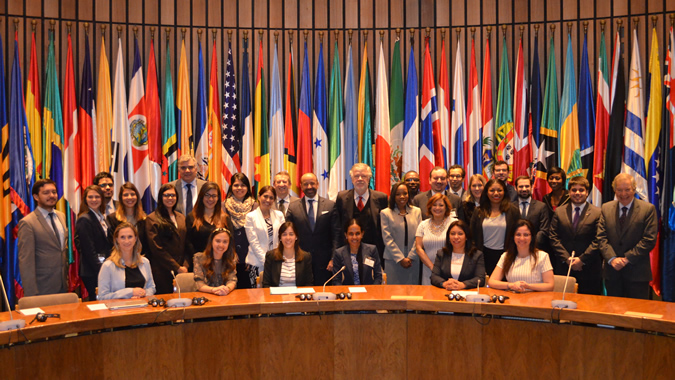United Nations Course on International Law Begins its Second Session at ECLAC
Work area(s)
The activity brings together 25 lawyers from 21 countries in the region and is organized by the UN Office of Legal Affairs, in collaboration with the government of Chile and ECLAC.

For the second straight year, the Economic Commission for Latin America and the Caribbean (ECLAC) will host the United Nations Regional Course on International Law for Latin America and the Caribbean, an activity that will convene 25 lawyers from 21 countries in the region at the organization’s headquarters in Santiago, Chile.
The course, which will last for four weeks, is organized by the United Nations Office of Legal Affairs (which is headquartered in New York), in collaboration with Chile’s Foreign Affairs Ministry and ECLAC.
Its objective is to enable qualified professionals, particularly government officials and international law professors from developing countries and countries with emerging economies, to deepen their knowledge regarding international law as well as the legal work of the United Nations and its associated bodies.
At the opening ceremony, ECLAC’s Legal Advisor and Chief of Protocol, Guillermo Acuña, welcomed participants on behalf of Alicia Bárcena, the institution’s Executive Secretary. He recalled that the multilateralism that ECLAC promotes in Latin America and the Caribbean – in accordance with the mandate it was given by its member countries – facilitates the identification of consensus on public policies through joint reflection and the illustration of best practices that provide technical support for the adoption of measures at a national level.
“One example of this can be seen in one of the most significant agreements reached at the international level that, today, guides system-wide development efforts: the 2030 Agenda for Sustainable Development and its Goals,” he emphasized.
Acuña also indicated that as part of this course, a special session will be held on the negotiation of the Regional Agreement on Principle 10 (regarding access to information, public participation and justice in environmental matters), which was adopted recently in Escazu, Costa Rica and which constitutes the first binding regional agreement in this area.
Carolina Valdivia, head of the Legal Division at Chile’s Ministry of Foreign Affairs, stressed that her country has always been an active member of the international community, which is reflected in the respect for international law, the peaceful resolution of disputes, the observance of treaties and participation in regional bodies dedicated to cooperation and integration.
“That is why we appreciate activities such as this one, which promote mutual understanding and a broader appreciation of international law,” the Chilean diplomat indicated. “Better knowledge of international law is a means for strengthening world security and peace, and for promoting friendlier and more cooperative relations among States.”
Finally, Jessica Elbaz, Secretary of the Advisory Committee to the Codification Division of the Office of Legal Affairs of the United Nations Secretariat, officially inaugurated the course. “This course in Latin America and the Caribbean, along with those in Africa and Asia-Pacific, are the cornerstone of the UN legal system,” she stated.
“This program has laid the foundations for promoting international law for more than half a century, and we hope to continue doing so for another 50 years. These regional courses give lawyers the opportunity to refresh and deepen their knowledge, as well as to share visions of professional experiences in different countries. In this way, they can seek common approaches to confront the global challenges of our time,” Elbaz indicated.
Related content

Lawyers from 18 Countries in the Region Attend United Nations Course in International Law at ECLAC
The training is taking place in Santiago, Chile and is organized by the United Nations Office of Legal Affairs, in collaboration with the Chilean government and ECLAC.
Type
Country(ies)
- Latin America and the Caribbean
Contact
Public Information Unit
- prensa@cepal.org
- (56 2) 2210 2040